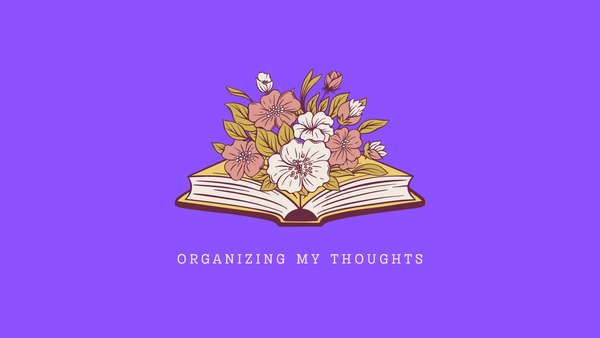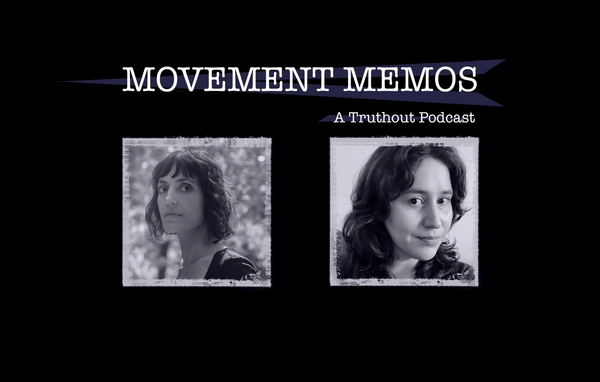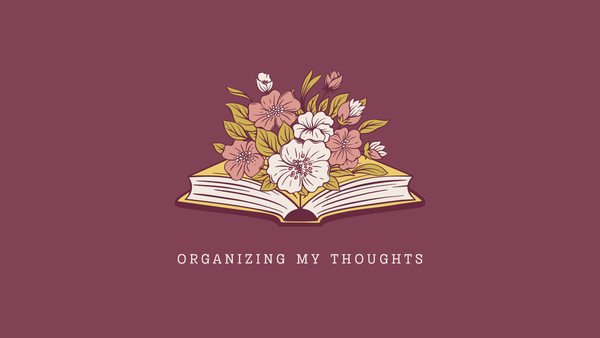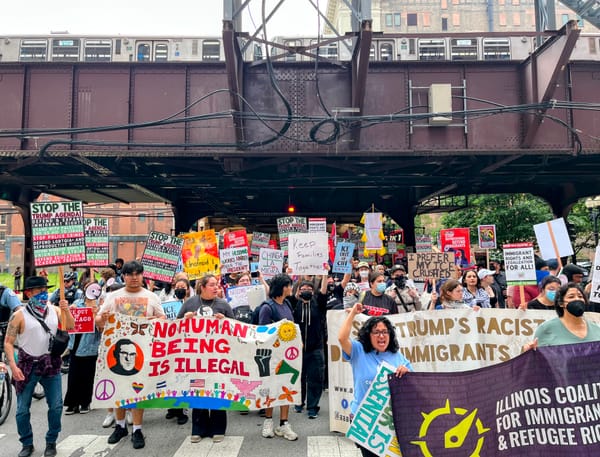Must-Reads and a 24-Hour Vigil for Gaza
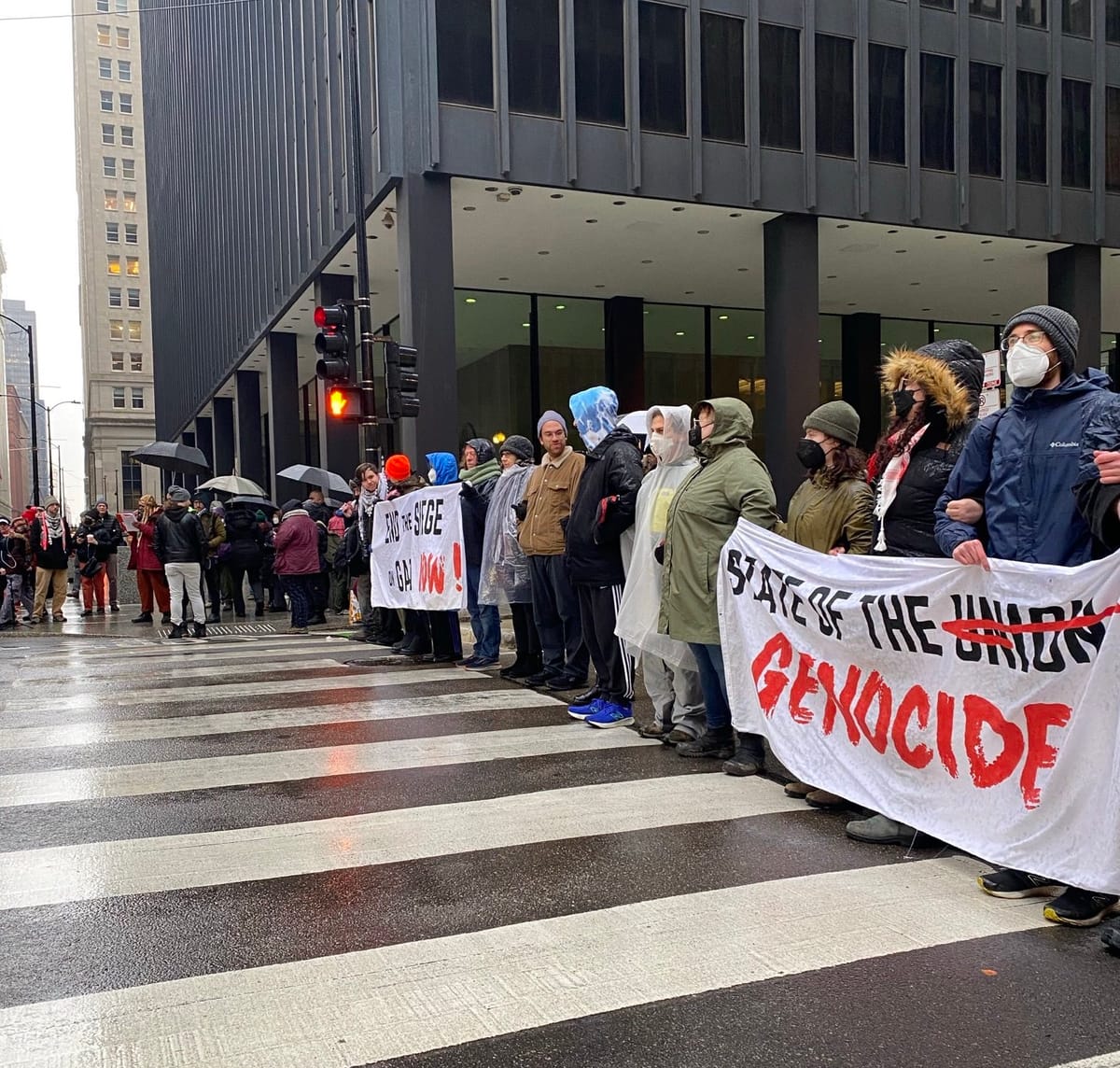
From pipeline resistance in Virginia to massacres in Gaza, the Uncommitted campaign, the humanitarian crisis in Haiti, and the fight against liquefied natural gas, here are some important stories you may have missed this week.
Despite Repression, Activists Continue to Shut Down Mountain Valley Pipeline by Cody Bloomfield. “In the likely event that you’re confused by how a protester can be charged with kidnapping, here’s how the state’s logic goes: The support rally protesters blocked the pathway of a vehicle, making the driver unable to leave, so under the law, he was detained, ergo ‘kidnapped.’”
Survivors of Gaza aid convoy massacre describe ‘indiscriminate’ Israeli fire by Mahmoud Mushtaha. “My 13-year-old cousin, Nidal, was shot dead while attempting to get a bag of flour from a truck near the Israeli army.”
The Most Important Labor Story Right Now Is in Minnesota—It Might Be the Model We All Need by Sarah Jaffe. "This broad cross section of Minnesota’s working class decided to go on the offensive, developing a set of guiding principles over months, made possible in turn by years of relationship building through street uprisings and overlapping crises."
Illinois Prison Fired Incarcerated Teacher for Saying Jim Crows Were Racist, Lawsuit Says by Elizabeth Weill-Greenberg. "In response to the student’s question, McNeal told the class that poll taxes and literacy tests from the 1940s through the 1960s were used to suppress the Black vote. An IDOC staff member who was supervising the class then intervened, telling McNeal not to discuss racism. Instead, he instructed McNeal to tell students that the literacy test was meant to ensure voters 'knew what they were voting for.'"
Opinion: Here’s what the Vote Uncommitted campaign is really about by Mitra Jalali and Aisha Chughtai. “Our communities made the difference in 2020, and are the key to President Biden’s re-election. Voting uncommitted is a demonstration of democratic power.”
Media Organizations Come Together to Uplift Journalism for a Free Palestine by Lara Witt & Maya Schenwar. “As journalists, we offer MAAD [Media Against Apartheid & Displacement] to the movement as a resource, a hub for documentation, and a commitment that the stories of genocidal atrocities — and the struggles against them — will be told, shared, amplified and never forgotten.”
The Shoah after Gaza by Pankaj Mishra. “In 1982, shortly before Reagan bluntly ordered Begin to cease his ‘holocaust’ in Lebanon, a young US senator who revered Elie Wiesel as his great teacher met the Israeli prime minister. In Begin’s own stunned account of the meeting, the senator commended the Israeli war effort and boasted that he would have gone further, even if it meant killing women and children. Begin himself was taken aback by the words of the future US president, Joe Biden.”
Stop Cop City Bay Area unites for Palestine by Gracelynne West. “Local activists argue that in advocating for greater accountability and transparency in law enforcement, it is imperative to stand against the ongoing human rights violations that Palestinians face under Israeli occupation.”
What Haiti Needs Is Human Rights Support — Not More Military Interventions by Cécile Accilien. “Whether or not international efforts to support Haiti’s stabilization succeed will in part depend on whether these efforts involve strategies to integrate everyday people, find a compromise among the various political parties to be able to share power and help Haitians (and especially the youth) see a future in Haiti.”
How this organizer is fighting the liquefied natural gas industry where she lives by Claire Elise Thompson. “Communities like Ozane’s already face some of the worst pollution in the nation from the petrochemical industry, and LNG terminals threaten to worsen an already disproportionate burden. For some other communities, the battle against the LNG industry represents a last-ditch effort to prevent that same fate.”
Holding Vigil for Gaza
In Chicago, a 24 hour vigil for Gaza ended with an act of civil disobedience Friday morning, when 30 activists were arrested for blocking a major intersection during rush hour traffic. The protesters demanded an end to the genocide in Gaza and immediate ceasefire in Gaza. The arrestees held the intersection of west Jackson Boulevard and south Dearborn Street for nearly 2 hours before being forcibly removed by police. They held banners reading “End the Siege on Gaza Now” and “30,000 Dead—Not One More.”
This act of civil disobedience concluded a 24-hour overnight vigil at Chicago’s Federal Plaza for the more than 30,000 Palestinians killed by Israel’s genocidal attacks in Gaza. The vigil was planned to coincide with President Biden’s State of the Union address, and was organized by a broad coalition of Palestinian, Jewish, Muslim, multi-racial, and teaching organizations. Over the course of 24 hours, the names of thousands of Palestinians killed by Israeli forces were read, and a candle was lit for every 100 names mentioned. I was among those who spoke at 8am, as the vigil began Thursday morning.
I have been declining most invitations to in-person events lately, as I have been navigating a lot of physical pain, but I was honored by the invitation to speak at such an important and sacred event, so I made my way downtown yesterday morning. I talked about the audacity of the Biden administration, and why no administrative or legislative accomplishment is worthy of applause while this administration facilitates genocide. But what I would like to share here are some words that I shared about grief, because those are the sentiments that are lingering in my heart today. I said:
Grief is the ultimate interruption of the normalization of mass death and mass murder because in grief, we acknowledge the value of life as we do in no other scenario. We grieve because we love life, because we love those we have lost. We love the living. We know the value of humanity. That is what our grief means to us. And so we retake our humanity, we reclaim public space, and we reclaim this day from a genocidal administration with our grief and with our love, and with our refusal to allow those who are dying to go unacknowledged. We hold this space for them. We say their names. We honor them because they are part of us and we are part of them. And so long as they are dying, there is no justice for any of us. And so there shall be no peace for those who lead us.
I know that many of us are grieving a great deal in these times, and that our grief can at times feel all-consuming. Grief can cause us to shut down, retreat, or turn inward, but I want to remind us that there is power in grief. Because grief refuses the normalization of violence and loss. Our grief is a rejection of dehumanization. By grieving, we are refusing to devalue the lives of those we have lost, and we are refusing to become less human ourselves. We are refusing to sacrifice the parts of ourselves that are soft and permeable enough to facilitate human connection and mutual recognition. In our grief, there is hope for humanity, because in our grief, love and decency persist in the face of atrocity.
I urge you to make space for your grief and to nurture its power. As Rasha Abdulhadi teaches us, “If our hearts break, let them break outward into action.”
May our hearts continue to break outward into action and expressions of love and solidarity until Palestine is free.
Much love,
Kelly

